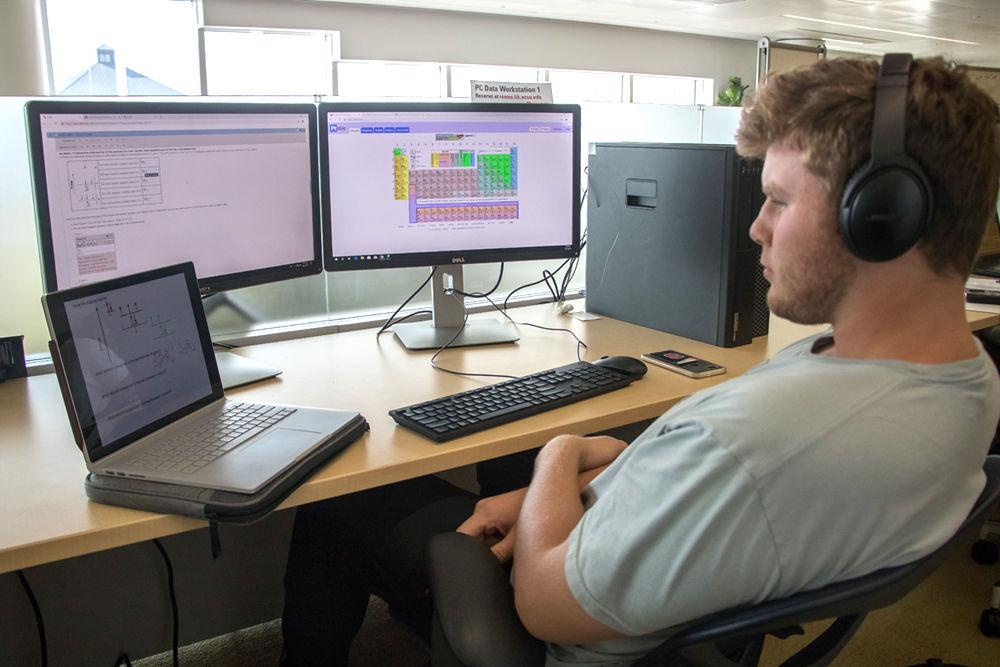Hunt Library has recently opened a new communal area known as the Dataspace, which seeks to help students with intense data computation activities.
Equipped with powerful computers and a trained staff, the space is designed for students to get work done, such as learning the R programming language, according to Karen Ciccone, department head of Data and Visualization Services.
“We would really like to see the Dataspace become a nexus for people doing data work so that there’s a sense of community there,” Ciccone said. “We have an R learning group that’s meeting in the space and we’re offering some fun tutorials on data science topics.”
Data science is a field of study involving all kinds of data manipulation. Image recognition, weather analysis, advertising, speech recognition, video games and many other industries are all heavily dependent on data science.
“It’s a really broad term that would encompass the various ways of working with data – finding and acquiring data, to cleaning data, data normalization, … quantitative analysis, qualitative analysis to data visualization,” Ciccone said.
Ciccone believes that having graduate consultants is what really set the space apart.
“We have six graduate student data science consultants that staff the space and offer drop-in hours on statistics, econometrics, SAS, data visualization, design … Adobe CS, MATLAB, Python, Java,” Ciccone said. “There’s a contact link to get in touch with data and visualization services, so we will do a consultation with you about your project or your problem. We want students to contact us when you need help.”
The Dataspace has a wide range of expert consultants who are there to help with a variety of issues. Mutka Dhotrad, a first-year graduate student studying financial mathematics, and Xing Huang, a third-year Ph.D. student studying design, are two of the consultants.
“Each one of us does consultations in specific areas,” Dhotrad said. “I have received requests on SQL, R, and Tableau. Yesterday I installed a MySQL workbench for one student. A few of the undergrad students have R homework … we do consultations on R, Python, SAS.”
Huang describes her experience as being different in terms of issues, but with the similar concept of using data.
“My work focuses more on design issues, so it’s not statistics or computer science, but how to aesthetically tell a story behind the data,” Huang said.
Both consultants expressed appreciation for the new space’s powerful workstations. The computers process tasks such as video editing significantly faster than typical students’ laptops would, and they have a wide array of popular software installed, including Adobe products, MATLAB, Python, Microsoft Office and the Unity game engine.
“Motion graphics take a lot of time for you to render on your own laptop, so it’s really a good place to work on that,” Huang said.
Additionally, fostering a sense of community in the Dataspace is crucial, according to Ciccone. She believes being able to meet with, collaborate with, and aid other students there would greatly boost the value of the space.
“I guess the hope is that the space will not just seem like a computer lab, but a fun space where you would want to stop in and maybe talk to other people about your project and maybe find peers that could help,” Ciccone said. “We also have data science consultants offering drop-in help. We want it to be lively, a community space.”
The Dataspace website shows scheduled drop-in consulting hours and allows for students and faculty to reserve a workstation. Further information about available software and data science, as well as help, can also be found on the site.








